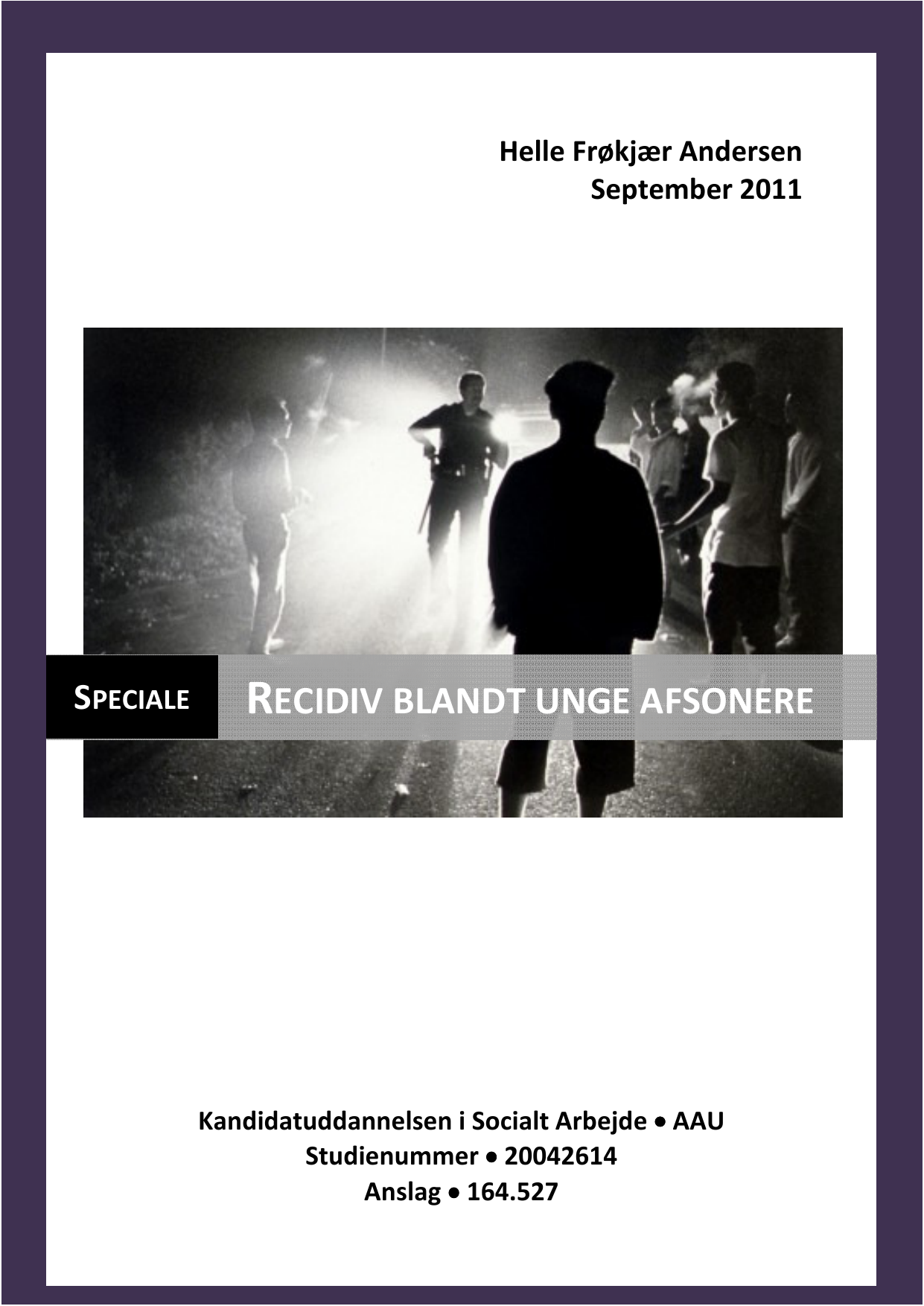
Recidiv blandt unge afsonere
Oversat titel
Forfatter
Semester
4. semester
Uddannelse
Udgivelsesår
2011
Afleveret
2011-09-09
Antal sider
87
Abstract
The subject of the thesis is young prisoners and how the social work within Danish prisons influence on their relapse into crime. Studies have shown that young criminals between the ages of 14 to 17, who are imprisoned, have a high risk of relapsing into crime. Furthermore studies have exposed that the youngsters social background has a great impact on the first time they commit crime, but not on their relapse. I therefore want to explore what part the imprisonment itself has on young prisoners relapse into crime. I find this interesting because the age of criminal responsibility has been adjusted from 15 to 14 years of age. The law has taken effect on July 1st. 2010. In the thesis I use a qualitative survey consisting of research interviews with three prison employees who work with the young prisoners. I want to explore the physical, social and cultural aspects of the social work within the prison and how this influence on the high risk of relapse into crime among the 14 to 17year old prisoners. I am interested in a nuanced understanding of how the social work is implemented and what the effects are thereof. The three interviews are analysed using theories concerning power within the prison, acknowledgement, individual development within different age groups and a theory about the affects of being in an institution like a prison. Because of some difficulties achieving enough interviews I also use the prison’s value statement about their daily work with the young prisoners. In the thesis I discovered that the social work in prison is highly determined by its context. Of obvious reasons the young prisoners do not have the same abilities as other people do. During the day the prisoners have to attend to their workstations, which are determined by the employees who are present the whole time. During their spare time the employees are also present. Therefore the prisoners are rarely left by themselves. According to the development theory, they need to interact with equals and to be accepted for their individual qualities in order for them to develop a successful identity. The social work however is mainly based on giving the prisoners positive interactions with the employees. This is not enough for them to learn positive relations they can use outside the prisons. Furthermore I found that it is difficult to implement acknowledgement in the social work in prisons, because of the restrictions the young prisoners undergo. Life in prison is influences by the power within the social work with the prisoners. There is obviously an imbalance in the hierarchy between the prisoners and the employees. The employees use their power through support and care to try to help the prisoners in becoming the individuals they want them to be. In any way the social work tries to help the youngsters, it will always be characterized and marked by its context, which leaves the prisoners with a lack of rights and a lack of influence on their daily life. This will take away their self-confidence and their ability to act independently, which make them unable to develop a positive self-image. There is therefore a high risk of them relapsing into crime, because it is difficult for the social work in prisons to start a development for them.
Emneord
